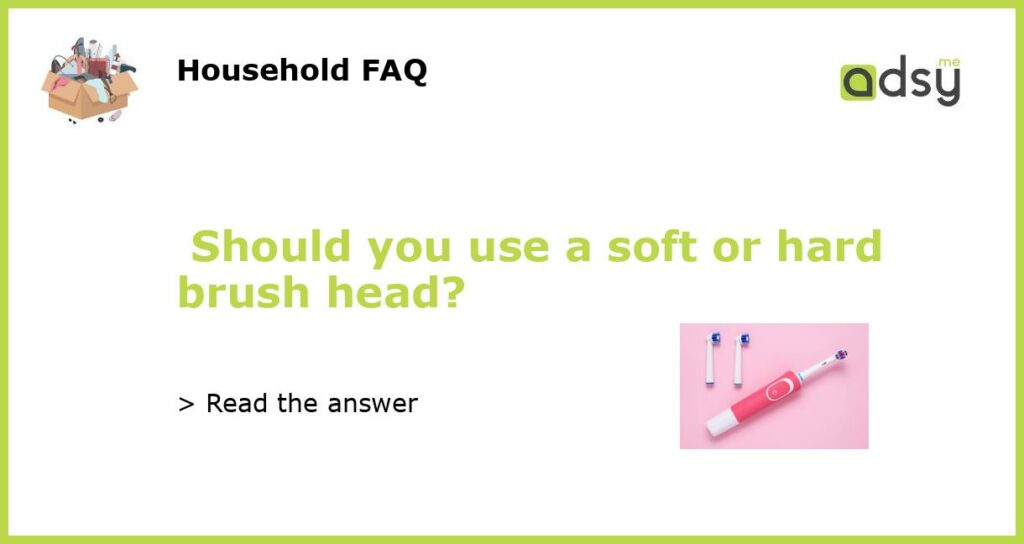When it comes to choosing a toothbrush, one of the most common dilemmas people face is whether to use a soft or hard brush head. While each has its own advantages and disadvantages, the type of toothbrush you choose can have a significant impact on your oral health. In this article, we’ll explore the pros and cons of soft and hard brush heads to help you make an informed decision.
What are soft brush heads?
Soft-bristled toothbrushes have bristles that are gentle on the teeth and gums. They are often recommended for people who have sensitive teeth or gums, as they help to minimize discomfort and prevent further damage to these areas. Soft brush heads are also good for people who have just undergone oral surgery or have braces or other orthodontic appliances installed.
What are hard brush heads?
Hard-bristled toothbrushes have bristles that are stiffer and more abrasive compared to soft brush heads. They are often touted as being more effective at removing stubborn debris and stains from the teeth. However, they can also be damaging to delicate tooth enamel and gum tissue, and are not recommended for people with sensitive teeth or gums or those who have undergone any kind of oral surgery.
Pros and cons of soft brush heads
As mentioned earlier, soft brush heads are gentle on the teeth and gums, and are recommended for people with sensitivity issues or just want a more comfortable brushing experience. Additionally, soft bristles are more flexible, allowing them to bend and reach areas that hard bristles may miss. The downside, however, is that they may not be as effective at removing persistent stains or build-ups, and may break down faster over time.
Pros and cons of hard brush heads
Hard brush heads are touted for their ability to clean the teeth more thoroughly, thanks to their stiff bristles. They are also more durable and can last longer compared to their soft counterparts. However, the main disadvantage of hard brush heads is that they can damage the teeth and gums if not used properly. Roughly brushing the teeth with hard bristles can cause enamel erosion, gum abrasions, and pain or bleeding in the mouth.
Whether to choose a soft or hard brush head ultimately comes down to personal preference and oral health needs. If you have sensitive teeth or gums, or have recently undergone any kind of oral surgery, it’s best to stick with a soft brush head. On the other hand, if you need a more thorough cleaning or have stubborn debris or stains on your teeth, a hard brush head may be suitable. However, remember that a proper brushing technique is just as important as the type of toothbrush you use, so always brush gently and effectively.






